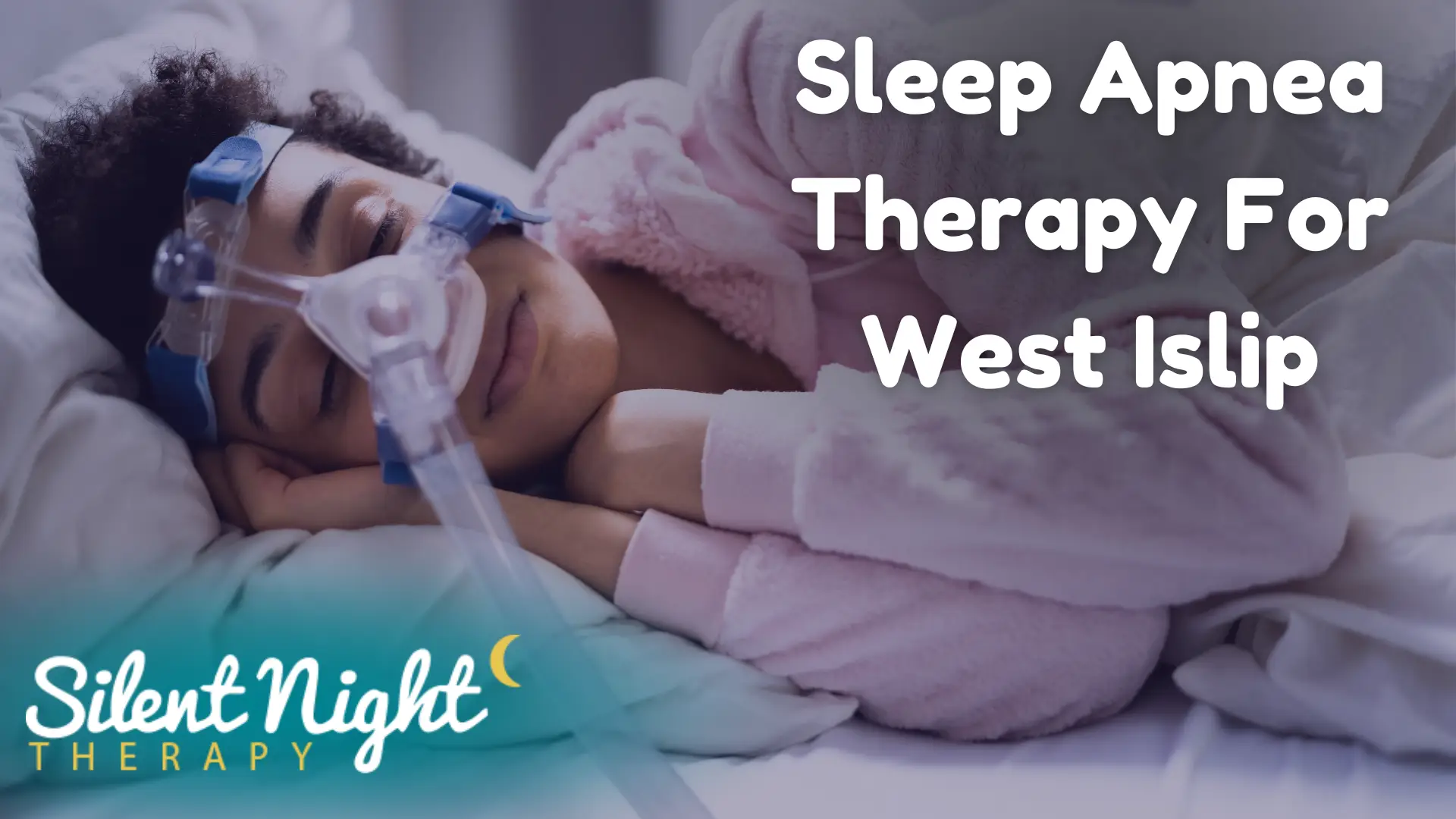
There’s nothing like crawling into a comfortable bed after a long day’s work and looking forward to a restful night’s sleep. Unfortunately, for many people, every night is filled with tossing and turning and waking up wondering what you’ve been doing for the past eight hours. Your body can’t function at its best when you don’t get adequate, restful sleep every day. From your poor mobility to your lack of energy and reduced cognitive abilities, the negative impact of poor sleep takes its toll on your body each day.
 A sleep disorder could be the culprit behind your restless sleep. There are several types of sleep disorders, one of which is sleep apnea. Frequent tossing and turning, constant waking, and feeling unrested when you wake up can be signs of sleep apnea.
A sleep disorder could be the culprit behind your restless sleep. There are several types of sleep disorders, one of which is sleep apnea. Frequent tossing and turning, constant waking, and feeling unrested when you wake up can be signs of sleep apnea.
At Silent Night Therapy, we strive to fulfill one objective: to help our patients get their best sleep to improve their overall health and quality of life. Founder and Sleep Apnea Specialist, Dr. Brown, cares deeply about his patients and their wellbeing. Throughout his decades of practicing dental sleep medicine, he’s helped treat patients for their sleep apnea disorders. With comprehensive treatment and compassionate care, Dr. Brown and his team will work hard to manage your sleep apnea and improve your sleep and health.
Call Silent Night Therapy at (631) 983-2463 today to schedule a free sleep consultation so we can evaluate you and begin creating a treatment plan to get you back to feeling your best.
Dynamic Toc TestWhat Is Sleep Apnea?
Sleep apnea is a sleep disorder that affects your breathing while you’re asleep. Sufferers of sleep apnea stop breathing while they’re asleep. Typically, your brain awakens your body to start breathing again, but this stopping and starting can occur multiple times in one night.
There are different types of sleep apnea. Obstructive sleep apnea is caused by the muscles in your mouth and throat relaxing enough to block your airway. Central sleep apnea is the result of your brain’s failure to communicate to your muscles, such as your abdominal and neck muscles and your diaphragm, that they should work so you can breathe. There’s also a type of sleep apnea that is caused by a combination of both obstructive and central sleep apnea, referred to as complex sleep apnea syndrome.
The Dangers of Untreated Sleep Apnea and Its Impact on Your Health
When sleep apnea is undiagnosed and untreated in a patient, there can be serious health consequences.
Untreated sleep apnea can lead to serious diseases that could be irreversible. One well-studied effect of untreated sleep apnea is that it makes diabetes more difficult to manage. The lack of oxygen from frequent pauses in your breathing causes a build-up of carbon dioxide in your blood. Increased carbon dioxide in your bloodstream can affect your body’s ability to regulate insulin, the important hormone responsible for managing your body’s glucose levels.
Sleep apnea, when not properly treated, can cause damage to your heart. Consider the fact that when you have sleep apnea, you constantly stop breathing in your sleep. With every span of time that your body isn’t taking in oxygen, your heart must work significantly harder to pump oxygenated blood throughout your body. Paused breathing also causes your body to release more stress hormones, which can contribute to the burden placed on your heart. According to research gleaned from a National Heart Lung and Blood Institute study, someone with sleep apnea is at a 140% increased risk for heart failure.
Symptoms of Sleep Apnea
There are various symptoms of sleep apnea, many of which go unnoticed by many sleep apnea sufferers. When you’re consistently waking up tired, you may just chalk it up to a busy several weeks or months and that you’re simply behind on sleep. You might think your morning headaches are indicative of your sensitivity to dust. But it’s important to take stock of whether you’re dealing with any of the following symptoms on a consistent basis so you can seek medical treatment:
- Snoring when sleeping

- Gasping for air when sleeping
- Night sweats
- Awakening with a rapid heart rate
- Extreme thirst and dry mouth when waking
- Waking up with a headache
- Difficulty concentrating
- Daytime fatigue
- Anxiety, depression, and mood changes
- Irritability
What Can I Do to Treat My Sleep Apnea?
Unlike your average seasonal allergies, for which you can take over-the-counter medication to minimize your symptoms, there’s no home remedy to treat sleep apnea.
To start, you can take our online sleep evaluation here. It should only take five minutes and will give you a very basic idea of whether your symptoms may suggest that you suffer from sleep apnea.
Next, you should schedule a complimentary sleep consultation with Silent Night Therapy. At the consultation, we’ll discuss your symptoms, medical history, and the current state of your health. We’ll do an examination to determine whether you have sleep apnea. We’ll likely order or recommend you take a sleep apnea test. The sleep apnea test can be done in your own bed at your own home. This test can give us reliable information about the quality of your sleep and whether you’re experiencing episodes of non-breathing in your sleep.
If, after our evaluation, all signs point to sleep apnea disorder, we’ll begin crafting the treatment plan that could produce the best results and improvements for you. Treatment could include wearing an oral appliance, making lifestyle changes like losing weight and eating a clean diet, using oral appliances or a CPAP machine, or surgery.
Ready for Better Sleep? Contact Silent Night Therapy Now
The West Islip sleep apnea specialists of Silent Night Therapy are here to minimize the dangers and discomfort of your sleep disorder so you can restore your long-lost nights of restful sleep. Call us at (631) 983-2463 to schedule your evaluation with our dedicated medical professionals.